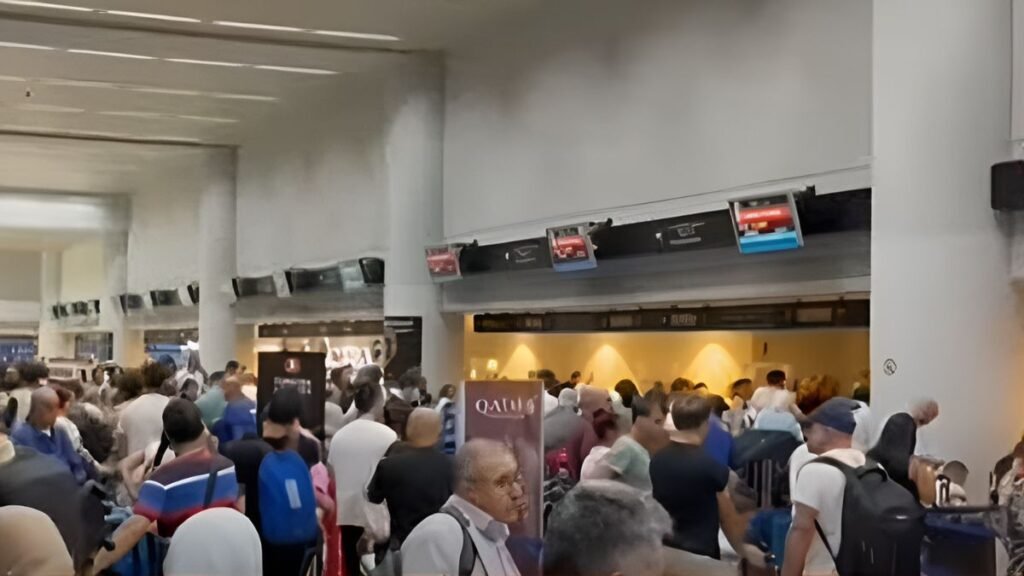In a significant escalation of regional tensions, the Israeli Air Force has launched strikes on targets in southern Lebanon after Hezbollah fired approximately 30 rockets across the border into northern Israel. The Israel Defense Forces (IDF) reported that most of the rockets were intercepted or landed in open areas, with no casualties reported.
This surge in hostilities follows the killing of Hamas political chief Ismail Haniyeh, an act for which Hezbollah, Iran, and their regional allies have vowed retaliation against Israel. The British, French, and U.S. embassies in Beirut have issued urgent warnings to their citizens to leave Lebanon immediately.
Queues formed at Beirut Airport’s departure terminal as people heeded the advice. Jenny Hill from BBC reported from Tel Aviv, noted the nearly daily exchanges since Israel launched its war on Gaza in response to the October 7 attacks. “This region is extremely tense right now,” Hill said, emphasizing that the conflict in Gaza is threatening to spill over into a wider regional conflict. Urgent diplomatic efforts are underway to prevent further escalation.
Iran has increased its rhetoric, with officials expecting Hezbollah to strike deeper into Israel, potentially targeting civilian infrastructure. U.S. President Joe Biden expressed hope that Iran might back down but admitted uncertainty.
Meanwhile, U.S. and U.K. authorities have intensified their warnings, urging citizens to leave Lebanon. The U.S. is deploying additional military resources, including warships and fighter jets, to the region, reinforcing its commitment to Israel’s defense.
In Gaza, the humanitarian crisis continues to worsen. Just yesterday, at least 15 Palestinians were killed while sheltering in a school. The plight of both Gaza residents and the families of Israeli hostages held by Hamas remains dire.
An Israeli delegation was in Cairo for negotiations aimed at establishing a ceasefire and securing hostage releases, but reports indicate that these talks were unsuccessful.
Expert Analysis on Regional Conflict
Laura Blumenfeld, a former senior policy adviser on the U.S. State Department’s Israeli-Palestinian negotiating team, provided insights on the potential for a wider regional war. “There is a sense of inevitability. As much as we’ve tried to avoid a regional war over the last 10 months, we seem to be getting closer,” Blumenfeld said.
Blumenfeld identified three potential paths for de-escalation: diplomacy, rewriting the narrative, and preemptive strikes. However, she noted that trust has been broken, making diplomacy challenging. She also mentioned that Israel might consider a massive preemptive strike similar to its strategy in June 1967.
Discussing Hezbollah’s capabilities, Blumenfeld highlighted the significant threat they pose compared to Hamas, referring to potential conflict with Hezbollah as “10 times as intense as any war with Hamas.” Israeli military planners have been preparing for such a scenario for years.
Regarding Israeli Prime Minister Benjamin Netanyahu, Blumenfeld suggested that his reluctance to agree to a ceasefire might be driven by both political considerations and a belief in aggressive deterrence. Biden has urged Netanyahu to sign a ceasefire, but Netanyahu’s approach has been to decisively counter threats.
As tensions escalate, the international community watches closely, hoping for a resolution to prevent a broader conflict.

